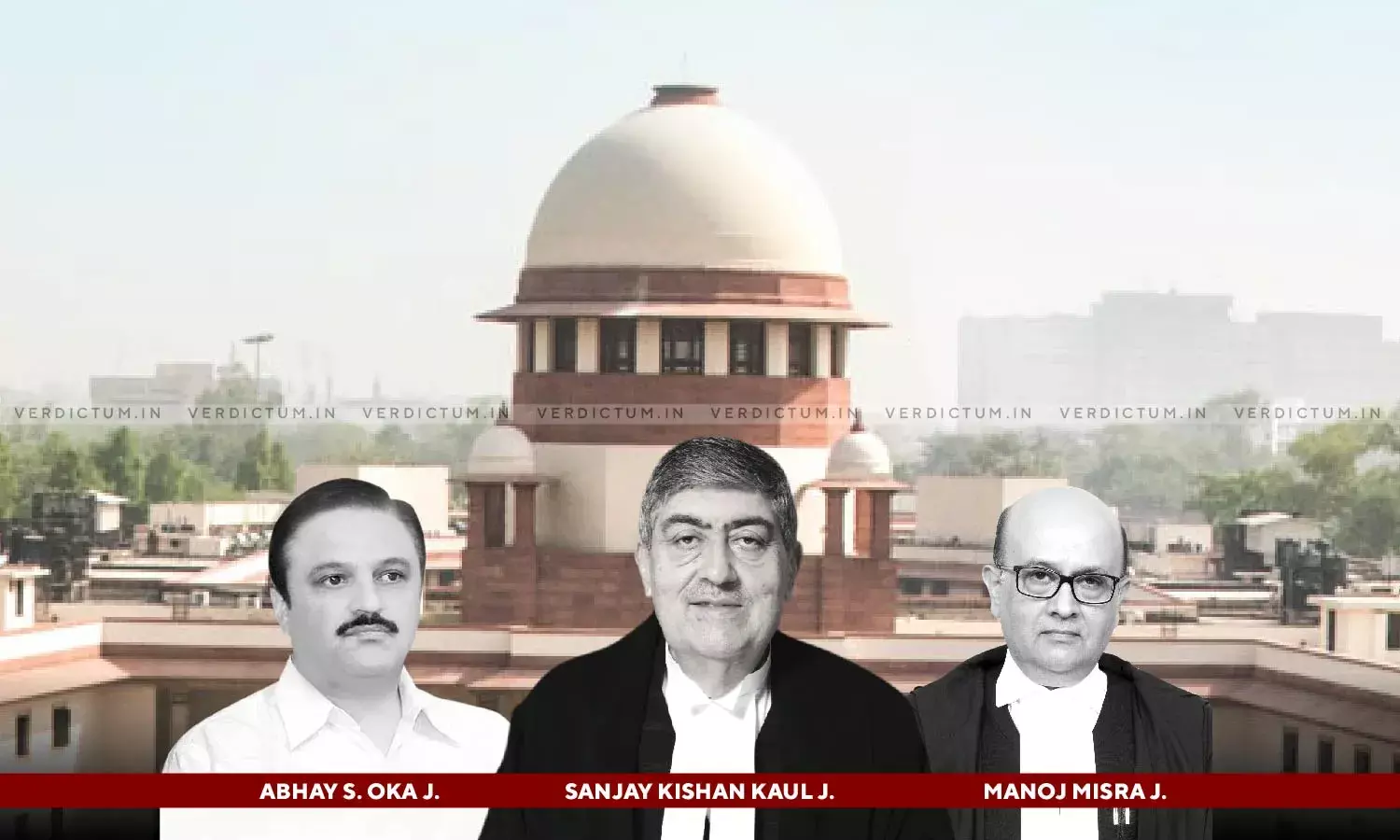“Affinity Test Is Not A Litmus Test To Decide A Caste Claim”- Supreme Court

The Supreme Court has held that an affinity test is not a litmus test to decide a caste claim and is not an essential part in the process of the determination of correctness of a caste or tribe claim in every case.
The three-Judge Bench comprising Justice Sanjay Kishan Kaul, Justice Abhay S. Oka, and Justice Manoj Misra observed, “For the reasons which we have recorded, affinity test cannot be conclusive either way. When an affinity test is conducted by the Vigilance Cell, the result of the test along with all other material on record having probative value will have to be taken into consideration by the Scrutiny Committee for deciding the caste validity claim … In short, affinity test is not a litmus test to decide a caste claim and is not an essential part in the process of the determination of correctness of a caste or tribe claim in every case.”
The Bench disagreed with the fact that the affinity test is an integral part of the determination of the correctness of the claim.
Senior Advocates Shekhar Naphade, V. Mohna, and Ravi K. Deshpande appeared on behalf of the appellants while Senior Advocate Shyam Divan appeared on behalf of the State.
Facts of the Case -
The Maharashtra Scheduled Castes, Scheduled Tribes, De-notified Tribes, (Vimukta Jatis), Nomadic Tribes, Other Backward Classes and Special Backward Category (Regulation of Issuance and Verification of) Caste Certificate Act, 2000 was brought by the State which deals with regulating the issue and verification of caste certificates to persons belonging to various categories of backward classes. The Scrutiny Committee constituted under Section 6 of the said Act has a power to verify the correctness of the caste certificates issued by the Competent Authority and the Competent Authority and the Scrutiny Committee have powers of a civil court under Section 9 with regard to the summoning and enforcing the attendance of witnesses, discovery and inspection of documents, etc.
The SC Rules specifically provide for the Vigilance Cell to conduct affinity test but there was a lack of clarity that whether the vigilance cell constituted under the ST Rules has a power to conduct the affinity test. The Bombay High Court in Shilpa Vishnu Thakur v. State of Maharashtra 2009 (3) Mh.LJ (F.B) 995 held that the affinity test is an integral part of the determination of the correctness of the caste claim under ST Rules. After interpretation of such an issue by the High Court as well as the Apex Court, the matter finally came before the larger bench.
The Supreme Court in view of the aforesaid facts noted, “… we will have to interpret the provisions of the 2000 Act. The 2000 Act came into force on 18th October 2001. … If the applicant has stayed in bigger urban areas along with his family for decades or if his family has stayed in such urban areas for decades, the applicant may not have knowledge of the aforesaid facts.”
The Court further noted that under the scheme of ST Rules, affinity test is to be conducted by the Vigilance Cell and the question of conducting affinity test will arise only when a case is made out for referring the case to Vigilance Cell.
“… the decision in the case of Vijakumar cannot be read as a binding precedent laying down a legal principle that in every case of verification of caste claim, the Caste Scrutiny Committee is under a mandate to refer the case to the Vigilance Cell. … the question of taking recourse to the affinity test will arise only if the case is referred to Vigilance Cell”, said the Court.
The Court asserted, “… sub-rule (2) of Rule 12 will apply and the Vigilance Cell will have to hold an enquiry including affinity test. Even in such a case, affinity test will not be conclusive either way as held in clause (2) of paragraph 20 in Anand’s case. In clause (c) of the same paragraph, the Full Bench of the High Court also holds that even if the applicant partially satisfies the affinity test, depending upon the nature of the evidence on record, the Scrutiny Committee has power to validate the claim. Thus, even clause (c) proceeds on the footing that the affinity test is not conclusive.”
The Court also observed that it cannot conclude that a finding has been recorded by the full Bench of the High Court about the conclusive nature of the affinity test.
“The finding cannot be understood to mean that reference to the Vigilance Cell and conduct of affinity test is mandatory in every case. However, we make it clear that for the reasons we have recorded in this judgment, we do not approve the observation in the impugned judgment that “the affinity test is an integral part of the determination of the correctness of the claim”, said the Court.
The Court held that while referring the case to Vigilance Cell, the Scrutiny Committee must record brief reasons for coming to the conclusion that it is not satisfied with the material produced by the applicant and only after a case is referred to the Vigilance Cell for making enquiry, an occasion for the conduct of affinity test will arise.
Accordingly, the Apex Court directed the Registry to place the appeals/SLPs before the appropriate Bench for deciding the same in the light of the reference answered by it.
Cause Title- Mah. Adiwasi Thakur Jamat Swarakshan Samiti v. The State Of Maharashtra & Ors.


